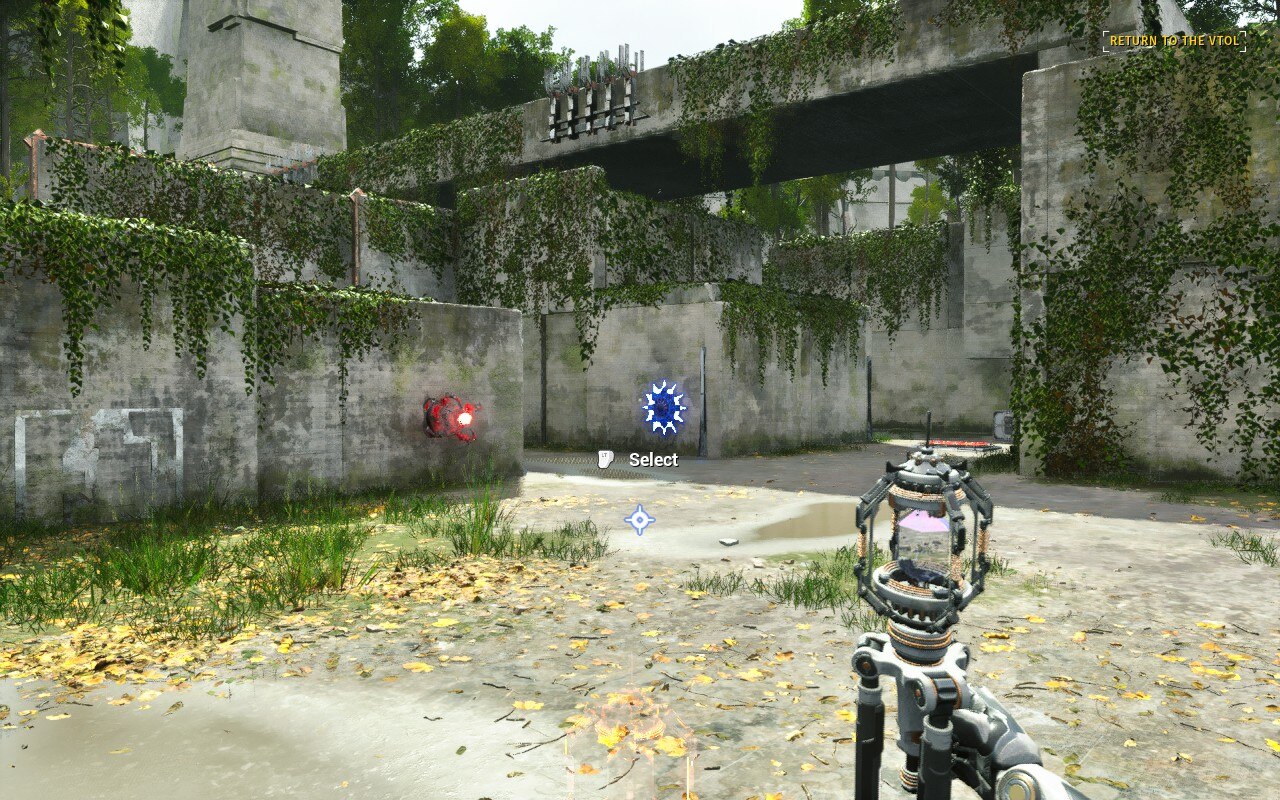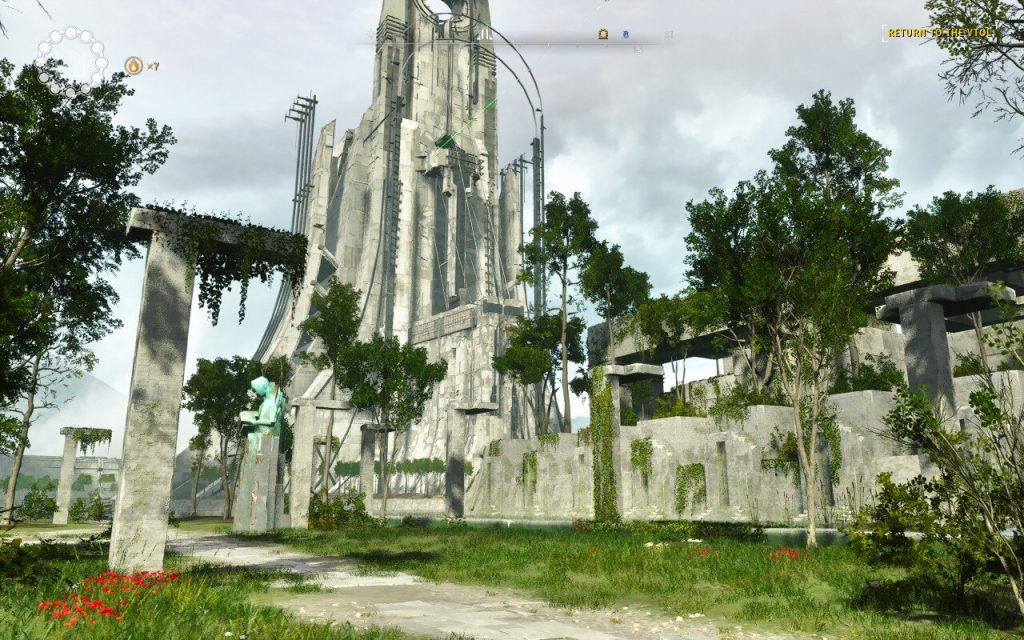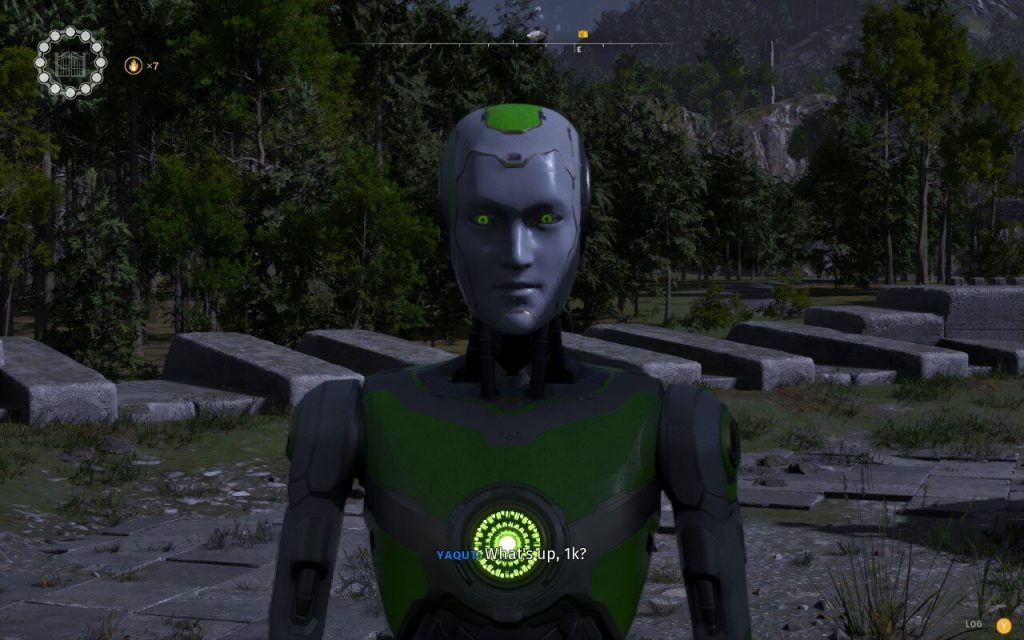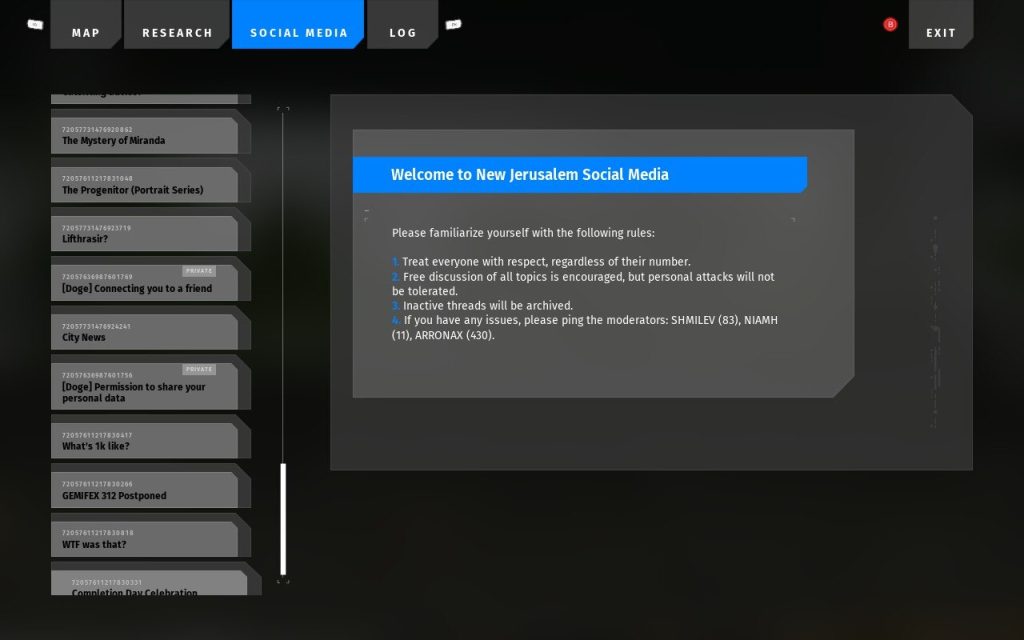
The Talos Principle 2 is a game about solving puzzles within enormous abandoned structures on a mysterious chain of islands. It is told through they eyes and interface of 1k, the thousandth new person created to join a civilization of androids in the wake of humankind's demise. It follows after 2014's The Talos Principle, which tells the story of the first android (and founder of said civilization) on her path to developing human-like consciousness.
Shortly after 1k is "born" and introduced to their new community, a strange figure appears in the sky and invites them to a mysterious island that seems to be the site of undiscovered man-made structures. From there, a small crew must embark on an expedition to explore the islands and uncover their secrets.
Both the original game and this year's sequel are ostensibly puzzle games first and foremost, and they're much more structured than COCOON (The Talos Principle 2 has over a hundred individual named and numbered puzzle chambers). But for all that, I have little to say about the puzzle gameplay other than: it's pretty good! Most of the stages have interesting ideas and clever solutions, and the few that feel too obtuse or imprecise aren't so bad that they spoil the rest. In the end, though, this game is about the ideas that it asks players to think about, not the logic challenges it asks them to complete along the way.

Philosophers, Not Just Philosophy
Both this game and its predecessor lean heavily on philosophical ponderance as they explore their thematic spaces. In the first game, it very often comes across as navel-gazing and self-indulgent. The sequel doesn't truly evade similar critiques, but it does an admirable job of assigning real stakes (for real people) to the various ideologies that it broaches throughout its story. The world is littered with voice memos, articles, poems, book excerpts, and correspondences that supplement and inform the conversations of the present. Some of these are still eye-roll-worthy, but most do something to elaborate the world and the characters in it, not just the metaphysical and sociological concepts.
The ideas espoused by the expedition crew align fairly directly with a few major themes, but often try to introduce complexity. Each character feels certain ways about the mysteries of the island and the megastructure built atop it, the safest path forward, whether to proceed at all, and eventually, what to do with the discoveries made. Philosophizing and pontificating can very easily be insufferable, but it's substantially more compelling when its centered around people who care about each other, and who are endeavoring to make the right decisions for their community.

Throughout it all, 1k is positioned as the fresh mind, the unbiased party who may guide the community with logical clarity. This often feels like a video-gamey compromise (aligning player agency with the protagonist's fictional positioning), but the interactions with the crew help to justify some degree of the trust afforded to 1k by their companions.
Intelligence, Artificial or Otherwise
The Talos Principle 2 succeeds in recontextualizing the philosophy-lecture overtones of its predecessor, but it also benefits from carrying forward many of the fictional ideas. In its opening moments, it introduces a complete society of post-human androids that consider themselves to be entirely human. It feels no need to question or debate their personhood, or agonize about the definition or ethics of AI. Instead, it spends its effort on highlighting how these people live and interact with their physical world in ways that differ from flesh-and-blood humans.
Building the story on a foundation of transhumanism (rather than inching towards it) gives The Talos Principle 2 a great deal of space to explore the interiority and nuance of the lives of its characters. Character details like pets, career preferences, and histories with one another bring the specificities of their lives into focus. They shine lights on the undercurrents of disagreement and uncertainty that affect the community. Their robotic bodies allow them to stream video and audio feed to one another at any time, and allow the citizens back home to speculate and participate. 1k can access a forum-style social network from the pause menu at any time, which populates periodically with the musings of the many members of the community. Topics will open and close to discuss random tangential topics or reactions to the efforts of the expedition. It's also a vehicle for humor and for deepening the cast of characters.

And of course, it's difficult to ignore the physical spaces themselves, filled with enigmatic structures of varying styles and designs that intend to evoke a sense of awe and grandeur. I don't know if The Talos Principle 2 is as jaw-droppingly beautiful as its commitment to Unreal Engine 5 fidelity suggests it wants to be. But it accomplishes a remarkable sense of scale and it creates a lot of striking and memorable spaces and structures to explore.
Conclusion
The Talos Principle 2 is still hard to recommend. It consists of a hefty portion of both puzzles and storytelling; at minimum, it demands that you tolerate one and truly enjoy the other. But I found my interest in it growing as I reached deeper and deeper into the island's mysteries, and felt that its writing was consistently sharp and deeply character-driven. Yes, many of its core cast of characters are ideological stand-ins; but they resist becoming exclusively stand-ins. They have preexisting friendships and rivalries, hobbies, interests, hopes, dreams, traumas, fears. Both the history of their community and the story of the game's present are harrowing and humanizing.
Though the philosophical binaries (or ternaries) of the story can feel unsatisfying or overly partitioned from one another, the game still provides a fair amount of substantive ideas to mull over. The writing is very clearly inviting critical thought and consideration of many perspectives. I'm not always happy with where it lands, but its willingness to strike up these conversations via such well-realized companions is engaging and worthwhile.